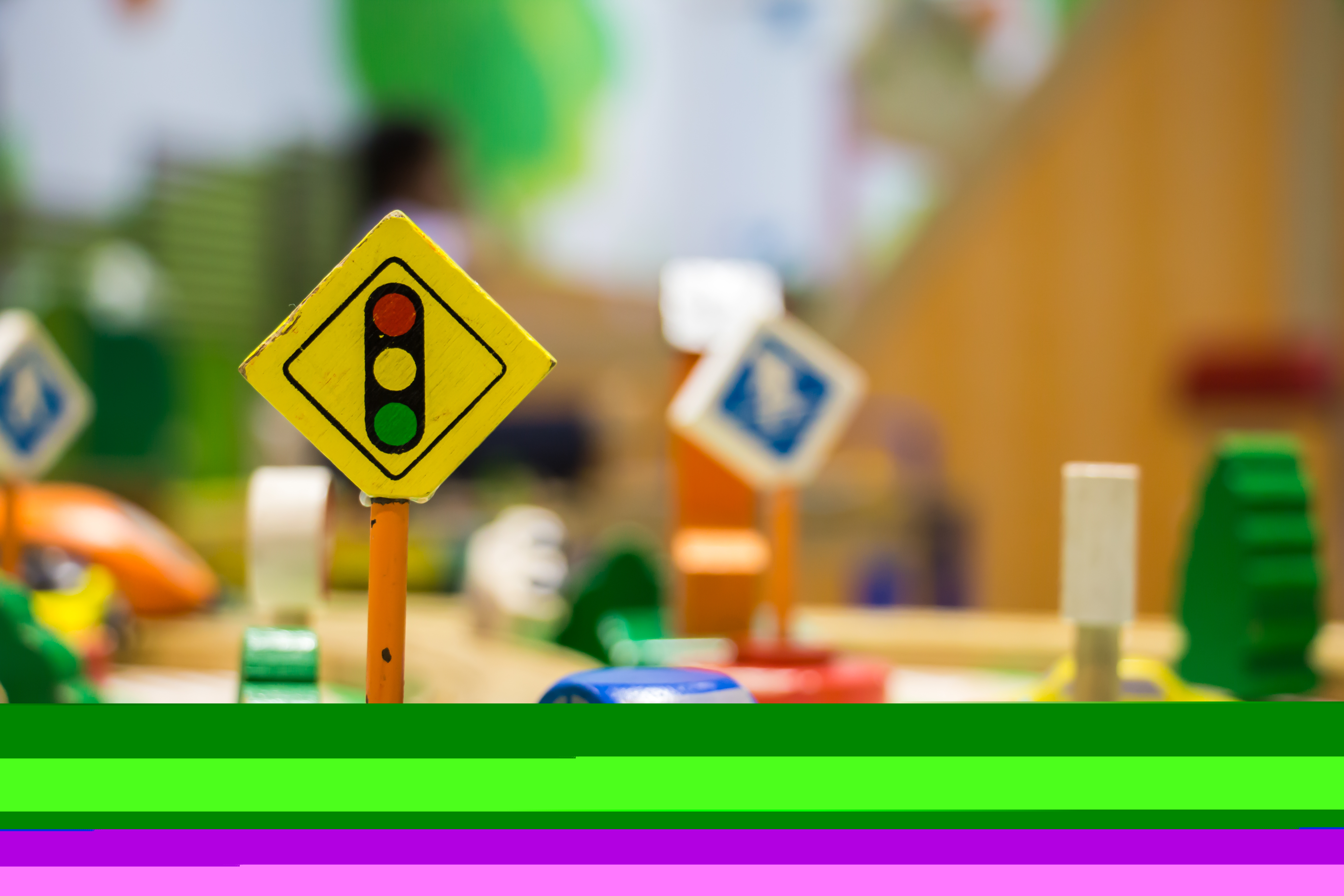Vocabulary Building Community Worksheets for Ages 4-8
4 filtered results
-
From - To
Foster your child's language development with our engaging Vocabulary Building Community Worksheets for ages 4-8. These expertly designed worksheets enhance children's understanding of community and social studies while expanding their vocabulary in a fun and interactive way. Each worksheet introduces young learners to new terms through activities that combine critical thinking and creative play. Perfect for both classroom and at-home education, these resources encourage kids to explore their surroundings and communicate more effectively. Join us to support your child's early language skills and curiosity about the world, laying a solid foundation for lifelong learning and social awareness.
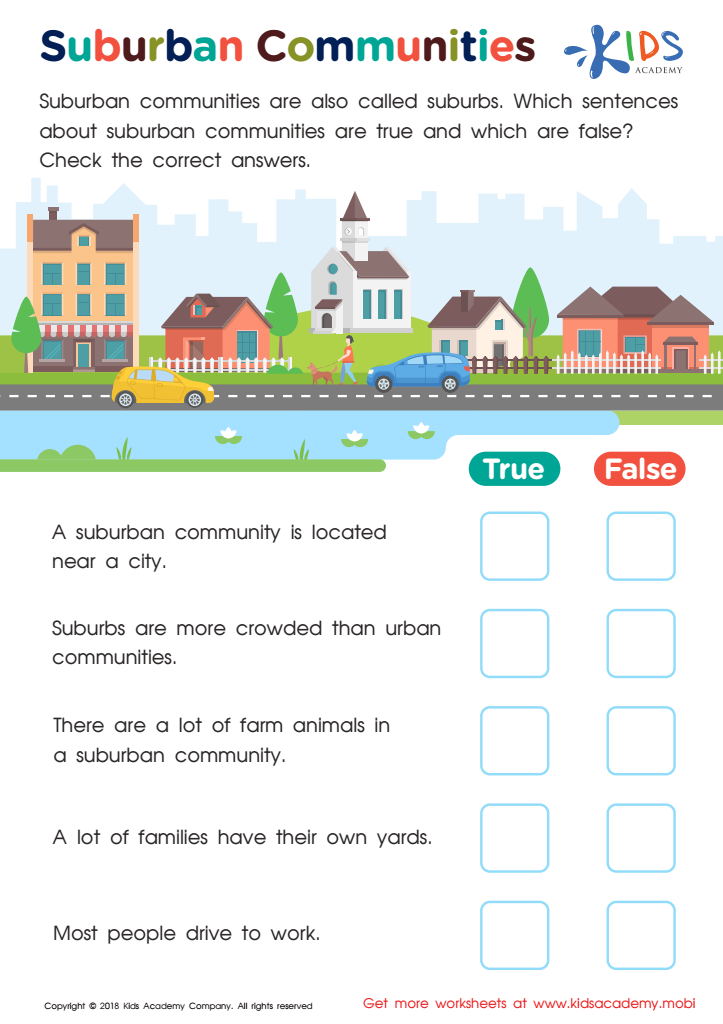

Suburban Communities Worksheet
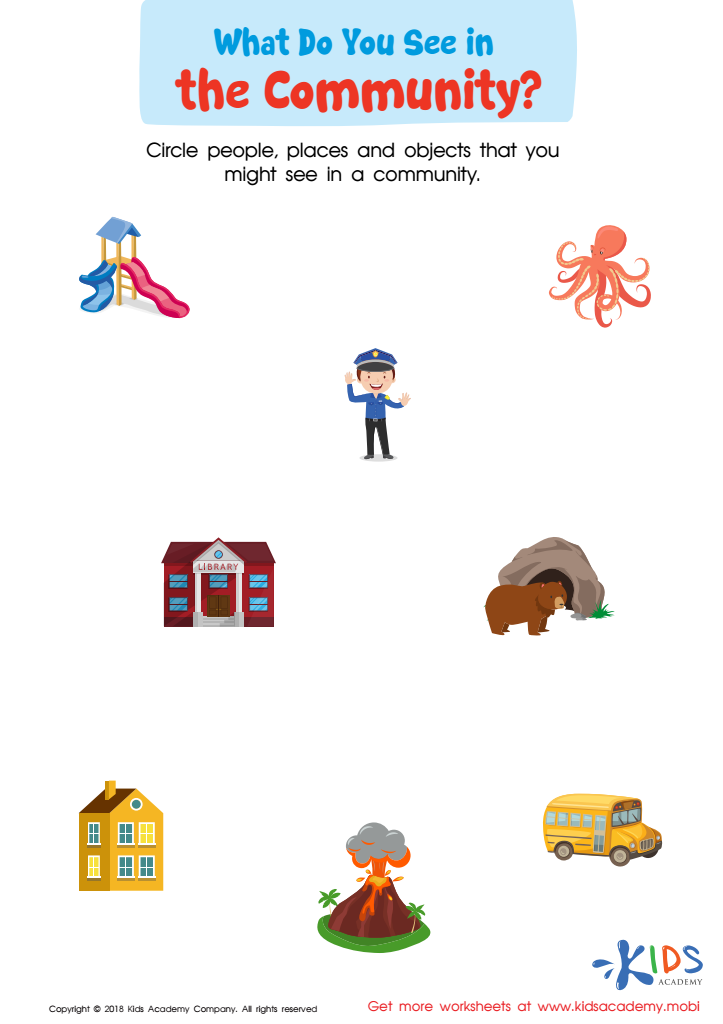

What Do You See in the Community Worksheet
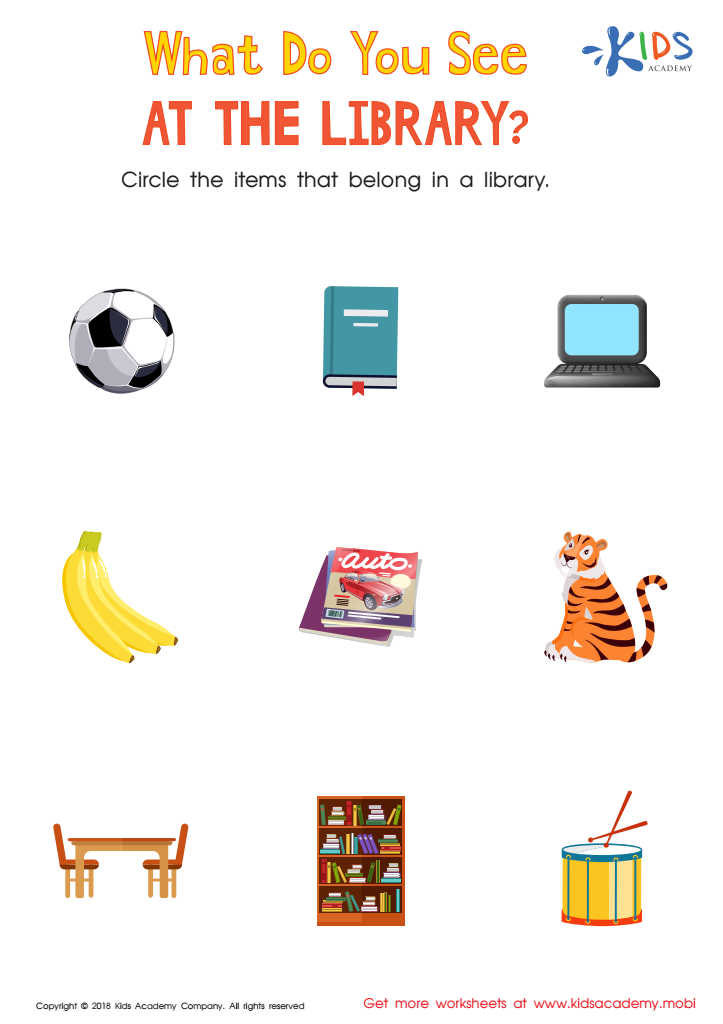

What Do you See at the Library? Worksheet
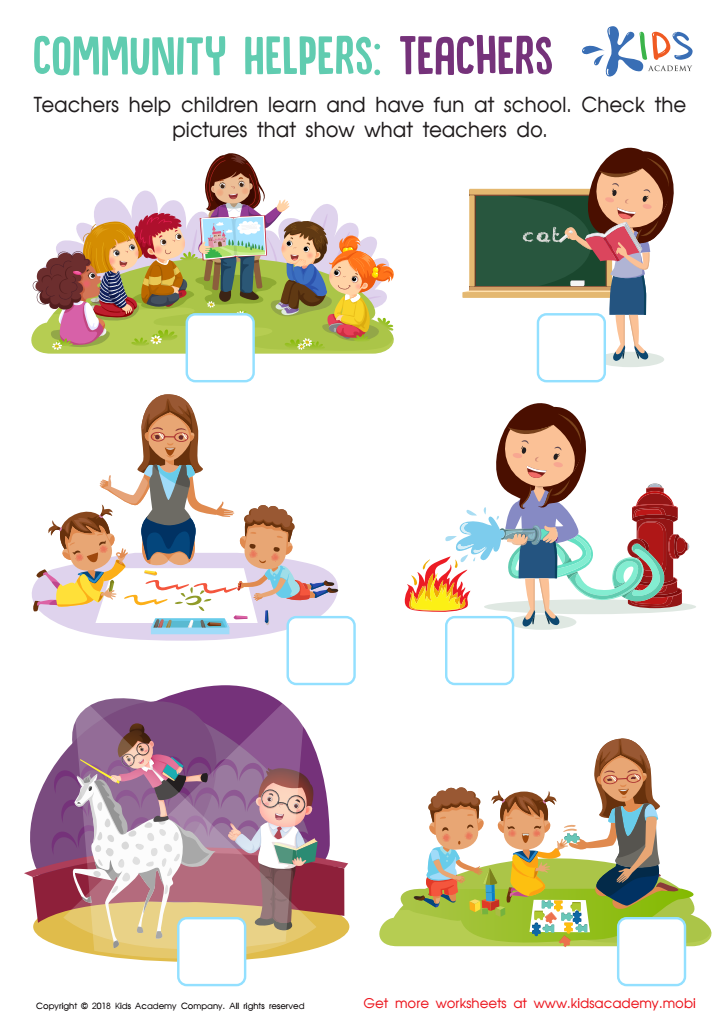

Teachers Community Helpers Worksheet
Vocabulary Building Community for ages 4-8 is essential for both parents and teachers to engage with because it lays the foundation for a child's future communication and cognitive skills. During these formative years, children are highly receptive to new words, and actively participating in a vocabulary-rich environment can drastically improve their language development.
For parents, being part of such a community means access to resources that make learning enjoyable and effective. Games, storytelling sessions, and interactive activities introduced by the community can be used at home to reinforce vocabulary in a fun, engaging manner. This collective approach not only bonds families but also elevates a child's enthusiasm for learning new words.
For teachers, a Vocabulary Building Community provides valuable support and strategies that can be seamlessly integrated into the classroom. Teachers gain insights on the best practices, creative lesson plans, and the latest educational tools aimed at enhancing vocabulary acquisition. Sharing experiences and methodologies within the community enriches teaching practices and student outcomes.
Furthermore, children benefit from consistent reinforcement at home and school, creating a holistic learning environment. Strong vocabulary skills enable children to better express themselves, read with comprehension, and perform academically across subjects. Thus, investing in such communities expedites language growth, preparing children for lifelong learning and successful communication.

 Assign to My Students
Assign to My Students







